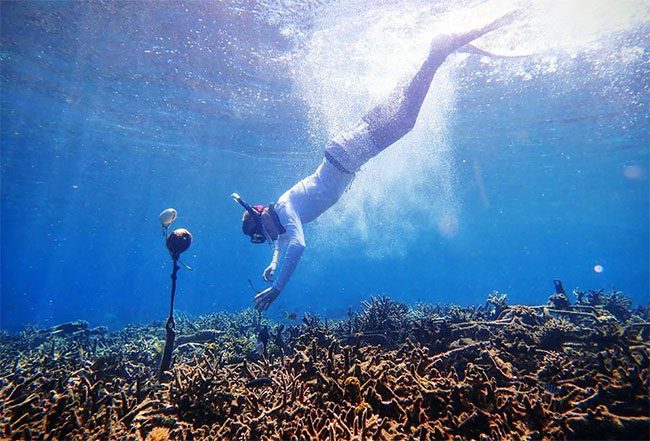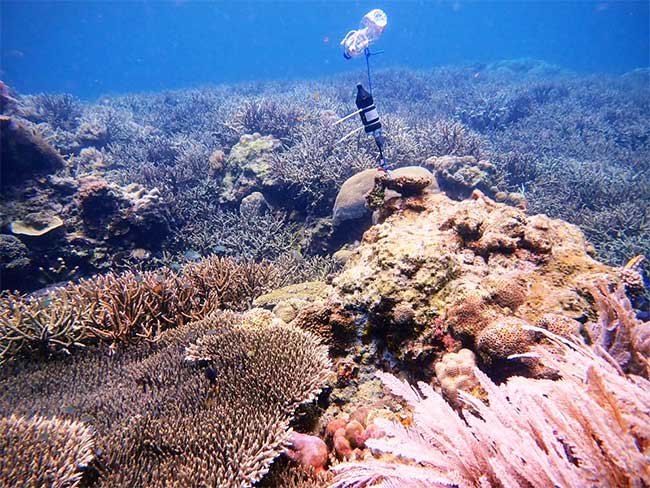Scientists recorded an underwater sound off the coast of the islands in central Indonesia, resembling the crackling of a campfire from a coral reef teeming with life.
According to research conducted by scientists from universities in the UK and Indonesia, recently published in the journal Ecological Indicators, they used hundreds of such sound recordings to train a computer program to monitor the health of coral reefs by listening to the sounds they produce.

A researcher installs a hydrophone in the waters of the Spermonde Archipelago, Indonesia. (Photo: Tim Lamont, University of Exeter, UK).
Ben Williams, a life sciences expert and the research team leader, stated that a healthy coral reef produces a chaotic sound “like a campfire” from all the living organisms on and within the coral. In contrast, the sound from a degraded coral reef seems more desolate.
This study found that the artificial intelligence (AI) system analyzes data points such as frequency and amplitude of sounds from the recordings and can accurately determine whether a coral reef is healthy or declining with at least 92% accuracy.
The scientists hope this new AI system will assist conservation groups worldwide in more effectively monitoring coral reef health.

A hydrophone placed on a coral reef in the waters of the Spermonde Archipelago, South Sulawesi Province, Indonesia, to record underwater sounds. (Photo: Tim Lamont, University of Exeter, UK).
Coral reefs are under pressure from carbon emissions caused by human activity, which have warmed ocean surfaces by 0.13 degrees Celsius per decade and increased acidity by 30% since the industrial era.
According to the Global Coral Reef Monitoring Network, approximately 14% of the world’s coral has been lost from 2009 to 2018, an area 2.5 times the size of the Grand Canyon National Park in the USA.
Although covering less than 1% of the ocean floor, coral reefs support over 25% of marine biodiversity, including turtles, fish, and lobsters, making them a fertile ground for the global fishing industry.
Indonesian conservationist and lecturer at the Marine Science Department of Hasanuddin University, Syafyudin Yusuf, noted that this research will aid in monitoring coral reef health in Indonesia.
The researchers also hope to gather underwater sound recordings from coral reefs in Australia, Mexico, and the Virgin Islands to help assess the progress of coral restoration projects.


















































